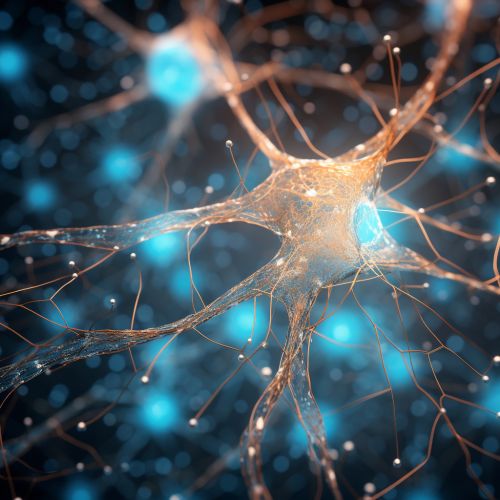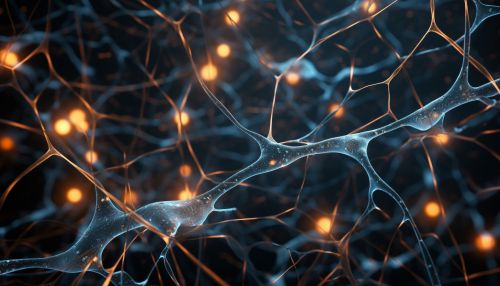Neuronal sprouting
Introduction
Neuronal sprouting is a biological process that involves the growth of new neurons or the modification of existing neurons. It is a fundamental mechanism in the development and plasticity of the nervous system, and plays a crucial role in learning, memory, and recovery from injury.


Neuronal Sprouting: An Overview
Neuronal sprouting can occur in two forms: axonal sprouting and dendritic sprouting. Axonal sprouting refers to the growth of new axons from existing neurons, while dendritic sprouting involves the growth of new dendrites. Both types of sprouting contribute to the formation of new synaptic connections, enhancing the complexity and functionality of the neural network.
Axonal Sprouting
Axonal sprouting is a process that occurs when an axon grows out from a neuron and makes connections with other neurons. This is a key process in the development of the nervous system, as it allows neurons to form complex networks of connections. In the adult brain, axonal sprouting can occur in response to injury or disease, as the brain attempts to repair damaged circuits and restore function.
Dendritic Sprouting
Dendritic sprouting is the process by which neurons grow new dendrites. Dendrites are the branch-like structures of a neuron that receive signals from other neurons. The growth of new dendrites increases the neuron's receptive field and allows it to form connections with a greater number of other neurons. This process is particularly important in the development of the brain and in learning and memory.
Mechanisms of Neuronal Sprouting
Neuronal sprouting is a complex process that is regulated by a variety of molecular and cellular mechanisms. Key factors in this process include growth factors, such as nerve growth factor (NGF) and brain-derived neurotrophic factor (BDNF), which promote the growth and survival of neurons. Other important factors include extracellular matrix molecules, which provide a scaffold for the growing neurons, and guidance molecules, which direct the growth of the neurons.
Role in Learning and Memory
Neuronal sprouting plays a critical role in learning and memory. The formation of new synaptic connections through axonal and dendritic sprouting allows the brain to adapt to new information and experiences. This process, known as synaptic plasticity, is thought to be the basis of learning and memory.
Role in Neurological Disorders
Abnormal neuronal sprouting can contribute to the development of neurological disorders. For example, in epilepsy, excessive axonal sprouting can lead to the formation of aberrant neural circuits, contributing to the hyperexcitability that characterizes this condition. On the other hand, in neurodegenerative diseases such as Alzheimer's disease, impaired neuronal sprouting can lead to the loss of synaptic connections and cognitive decline.
Role in Neural Repair and Regeneration
Neuronal sprouting also plays a key role in neural repair and regeneration following injury. After a stroke or spinal cord injury, for example, neurons in the affected area can undergo axonal sprouting in an attempt to reestablish lost connections and restore function. However, this process is often limited and inefficient, and much research is currently focused on finding ways to enhance neuronal sprouting and improve recovery after neural injury.
